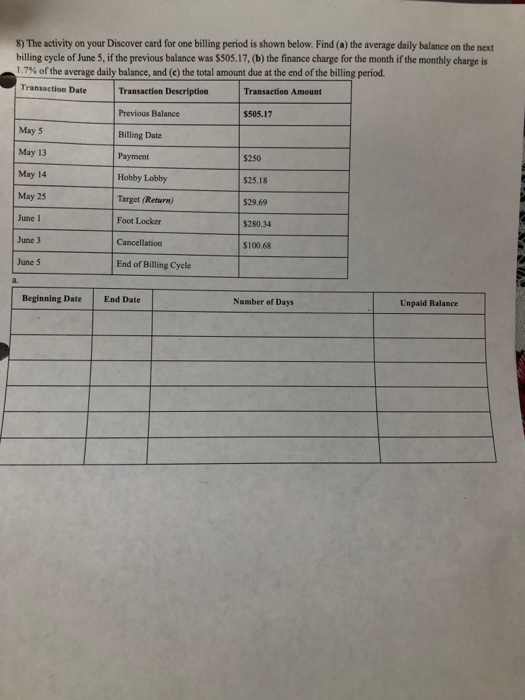Table of ContentsIn Finance What Is A Derivative Things To Know Before You Get ThisWhat Is A Derivative In.com Finance - The FactsSome Ideas on What Is A Derivative In.com Finance You Need To KnowSome Ideas on What Is Derivative Instruments In Finance You Should KnowAll About What Is Derivative N Finance
Tabulation Derivatives are instruments to manage monetary threats. Considering that risk is a fundamental part of any financial investment, monetary markets devised derivatives as their own variation of handling financial danger. Derivatives are structured as contracts and derive their returns from other financial instruments. If the market consisted of just easy financial investments like stocks and bonds, managing threat would be as simple as altering the portfolio allowance among risky stocks and risk-free bonds.
Derivatives are one of the ways to insure your financial investments versus market changes. A derivative is defined as a financial instrument developed to earn a market return based upon the returns of another underlying asset. It is appropriately called after its mechanism; as its reward is originated from some other monetary instrument.
It might be as basic as one party paying some cash to the other and in return, receiving coverage versus future financial losses. There likewise could be a scenario where no money payment is involved up front. In such cases, both the celebrations concur to do something for each other at a later date.
Every derivative begins on a particular date and ends on a later date. Normally, the reward from a certain derivative agreement is computed and/or is made on the termination date, although this can differ in some cases. As stated in the meaning, the efficiency of a derivative is dependent on the hidden possession's performance.
This asset is traded in a market where both the purchasers and the sellers equally decide its price, and after that the seller delivers the underlying to the buyer and is paid in return. Spot or cash cost is the rate of the underlying if bought instantly. Acquired agreements can be separated into numerous types.
These contracts have basic functions and terms, with no modification enabled and are backed by a clearinghouse. Over the counter (OTC) agreements are those transactions that are created by both purchasers and sellers anywhere else. Such agreements are uncontrolled and might carry the default risk for the agreement owner. Usually, timeshare week calender the derivatives are classified into two broad classifications: Forward Commitments Contingent Claims Forward dedications are contracts in which the celebrations assure to perform the transaction at a particular later date at a price agreed upon in the start.
Not known Factual Statements About What Is A Derivative In.com Finance
The underlying can either be a physical possession or a stock. The loss or gain of a specific celebration is identified by the price motion of the property. If the cost increases, the purchaser sustains a gain as he still gets to buy the possession at the older and lower cost.

For a detailed understanding, you can read our exclusive post on Swap can be specified as a series of forward derivatives. It is basically an agreement in between 2 parties where they exchange a series of cash flows in the future. One party will grant pay the drifting rate of interest on a principal amount while the other party will pay a set interest rate on the very same amount in return.
Exchange traded forward dedications are called futures. A future contract is another variation of a forward contract, which is exchange-traded and standardized. Unlike forward agreements, future agreements are actively traded in the secondary market, have the backing of the clearinghouse, follow guidelines and include a day-to-day settlement cycle of gains and losses. There are even derivatives based upon other derivatives. The factor for this is that derivatives are great at satisfying the needs Get more info of numerous various companies and individuals worldwide. Futures contracts: This is a contract made in between two parties (a purchaser and seller) that a commodity or monetary instrument will be bought or offered at a predetermined price on a predetermined future date.
These agreements are widely offered for dozens of stock market indices and practically every commodity that is commercially produced consisting of industrial and valuable metals, seeds, grains, livestock, oil and gas and even carbon credits. Forward contracts: These are very comparable to futures agreements however with some essential distinctions. A forward agreement is custom-made in between 2 parties and is an agreement to buy or offer a possession or commodity at a given rate on an offered date (what determines a derivative finance).
Alternative contracts: An alternative contract offers the contract owner (the buyer) the right to purchase or offer a pre-determined amount of a hidden possession. The secret here is that the owner has the right to purchase, not the commitment. They have actually proliferated in popularity in recent years and options exist for a wide range of underlying properties.
With a call choice, the owner has the right to purchase the hidden property. With a put option, the owner can sell it. Swaps: While not technically derivatives, swaps are normally thought about as such. A swap is a contract where two celebrations actually exchange, or swap, a monetary instrument's capital for a restricted amount of time.
5 Simple Techniques For What Is A Derivative Finance
Unlike futures and alternatives agreements, swaps are traded over the counter between the celebrations involved and the swaps market is dominated by monetary organizations and corporations with couple of personal individuals taking part. Credit derivatives: This describes one of many monetary instruments and strategies utilized to separate and move credit danger. The danger in question is generally that of a default by corporate or personal customers.
Although there are many kinds of credit derivative, they can be broadly divided into 2 categories: funded credit derivatives and unfunded credit derivatives. An unfunded credit derivative is a bilateral arrangement in between 2 celebrations and each party is accountable for finishing its payments. A funded credit derivative is where the protection seller (the party who is presuming the credit danger) makes a payment that is later used to settle any credit occasions that might take place.
In the case of an unfavorable distinction taking place, the seller is paid by the buyer. Hedging or mitigating danger. This is commonly done to insure or secure versus the danger of a hidden possession. For example, those desiring to safeguard themselves in case of their stock's cost toppling might buy a put alternative.
To offer leverage. A small movement in the cost of a hidden possession can produce a large difference in a derivative's worth. Options agreements in specific are particularly valuable in an unstable market. When the underlying asset's price moves substantially in a more beneficial direction then the option's worth is magnified.
This is a technique whereby financiers literally speculate on an asset's future price. This is connected in with utilize due to the fact that when financiers are able to utilize utilize on their position (as a result of alternatives contracts), they are likewise able to make big speculative plays at a fairly low cost.

Although they can allow investors to make large amounts of cash from small cost movements in the underlying possession, there is likewise the possibility that large losses might be made if the rate relocations significantly in the other instructions. what do you learn in a finance derivative class. There have actually been some high-profile examples of this in the past including AIG, Barings Bank, Socit Gnrale and others.
Indicators on What Is Derivative Finance You Need To Know
This is danger that arises from the other celebration in monetary deals. Various derivatives have different levels of counterparty risk and a few of the standardised variations are required by law to have actually a quantity transferred with the exchange in order to pay for any losses. Big notional value. Well known American financier Warren Buffett once explained derivatives as 'monetary weapons of mass destruction' since of the risk that their usage might create enormous losses for which investors would be not able to compensate.
Derivatives have actually likewise been criticised for their intricacy. The various derivative strategies are so complicated that they can just be carried out by professionals making them a difficult tool for layperson to utilise. MoneyWeek has an outstanding investment tutorial on derivates and how you can use them to your advantage. See it here.
Undoubtedly, if you were taking note in those dark days when the worst financial crisis given that the Great Anxiety was ruining the residents of the world, you made sure interval international timeshare to read and hear this mysterious word duplicated over and over. It appeared that this exceedingly complicated financial concept had practically single-handedly destroyed the international economy.
More accurately, what makes derivatives special is that they obtain their worth from something referred to as an "underlying." The term "underlying" ended up being a sort of shorthand to describe the types of financial assets that supplied the financial value upon which financial derivatives are based. These underlying monetary possessions can take lots of kinds: whatever from stocks, bonds, and products to things as abstract as rate of interest, market indexes, and international currencies - what is derivative instruments in finance.
This, in a sense, is what makes them so questionable and, as we learned from the monetary crisis of 2008, so volatile. While the purposes of trading derivatives are lots of and inherently complex, there are some basic ideas at play in the majority of circumstances of derivative trading. The primary factor investor trade in derivatives is to hedge their bets against various economic and financial risks.
The risks that these investors are attempting to prevent by employing these creative financial instruments include things like interest rate shifts, currency worths, and credit ratings. Through complex financial mechanisms, derivatives are often utilized to utilize properties. This means that even minor shifts in the value of the underlying asset can potentially lead to massive changes in worth for the derivative.
What Determines A Derivative Finance Fundamentals Explained
Another benefit to investing in particular type of derivatives is that they can potentially supply the investor with a continuous stream of earnings, earnings on which the financier may not be needed to pay the capital gains tax. Some may call it betting, but the idea of speculation with regard to derivatives is that the investor hypothesizes upon which direction the value of the underlying possession will go.
If he is inaccurate in his speculation, he still retains the underlying worth of the possession. There are 2 standard "umbrella" terms that include all of the other variations of derivatives. These 2 broad classifications are specified by the methods in which they are traded in the market. These classifications are over the counter (or, OTC) derivatives and exchange-traded derivatives.
, a practice that makes the trading process more fluid and the possessions more liquid (pun intended). The trading process of derivatives through these clearinghouses is complex indeed, and certainly out of the realm of this article. Suffice it to state that the exchanges are made anonymously through the clearinghouse, which ends up being a counterparty to all agreements.
As if exchange-traded derivative markets weren't confusing enough, non-prescription acquired markets take this intricacy to a brand-new level. The standard idea is that the trades are worked out and performed privately in between parties according to their individual danger preferences. However there's more to it than that: these private trades go through trade dealers, who then trade among each other.